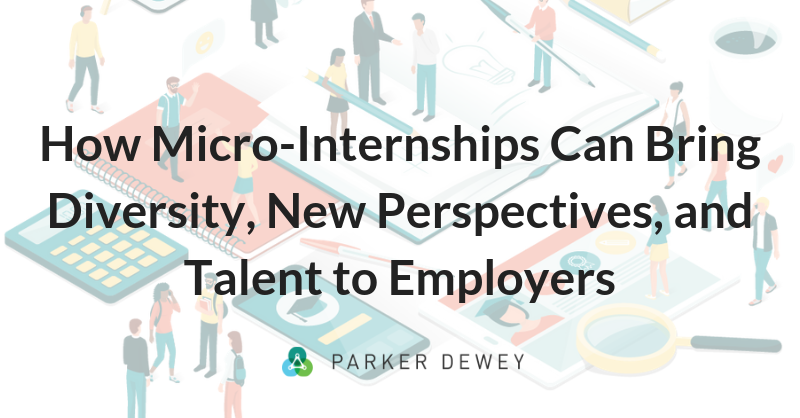
A Guide to Gen Z Recruiting: Understanding Their Values and Aspirations
If adapting your talent strategy to resonate with Gen Z has been on your mind, you're in good company. Talent leaders globally are grappling with the challenge of drawing in and retaining Gen Z employees.
With the work environment changing fast, welcoming Generation Z into the workforce brings fresh perspectives, tech know-how, and a strong social conscience. Born between the mid-1990s and early 2010s, this group joins the workforce valuing flexibility and innovation as much as pay and job security.
This generation brings distinct traits, hurdles, and possibilities that differentiate it from its predecessors. Understanding and adapting to Gen Z's unique characteristics and motivations for talent acquisition teams isn't just helpful; it's vital for companies aiming to stay ahead in today's competitive market. In this guide, we'll cover all you need to know about attracting and keeping Gen Z talent.
Who Is Considered "Gen-Z"?
Gen Z (born between 1997 and 2012) represents the cohort following Millennials. This generation is distinct in that it is the first to have grown up fully immersed in the digital age, having unprecedented access to information, technology, and global communication from a young age.
As workers, Gen Z is characterized by their proficiency with digital tools, strong inclination towards work-life balance, and notable preference for jobs that offer career advancement opportunities and a sense of purpose.
They value diversity, inclusivity, and social responsibility in the workplace and the brands they support. Adaptability, creativity, and a collaborative spirit are also common traits, making them a valuable asset to teams looking to innovate and evolve.
6 Ways Businesses Can Attract Gen-Z Talent
Now that we better understand Gen Z's values and motivations, let's explore strategies for attracting these talented candidates to your organization.
Create A Flexible Work Environment
Gen Z is distinctively passionate about work-life balance, demanding more than just a desk and regular office hours from their employers. A staggering 75% of Gen Z workers say that workplace flexibility is the number one employee benefit they seek.
As a result, companies are encouraged to create a flexible work environment that allows for remote work (when possible), flexible hours, and an emphasis on work productivity rather than just being physically present in the office.
Provide Room To Grow
Another critical aspect of attracting Gen Z talent is to offer them room for growth and development within the company. This generation values continual learning and opportunities for advancement, making training programs, mentorship, and career progression a considerable draw. Gen Zers would even take a 5% pay cut to accept a role that offered better growth opportunities.
One way companies provide this growth and development is by working with interns on short-term projects to meet their business needs. Companies can demonstrate a solid commitment to Gen Z’s skill development by offering Micro-Internships starting as early as their freshman year. Micro-Internships are available year-round, on-demand, and can be completed remotely anytime, aligning perfectly with the values and expectations of the Gen Z workforce.
These projects can be used to build a talent pipeline, which allows employers to market future opportunities to a warm base of candidates they've already engaged with instead of starting from scratch.
Hire Based On Skills, Not Degrees
Gen Z values practical skills and experience that align with their career goals. This offers employers a unique opportunity to broaden their recruitment pool beyond just those with specific college degrees.
Companies can attract a more diverse and talented group of individuals by focusing on the specific skills and competencies needed for a role rather than solely relying on degree requirements. For example, using skills assessments and hands-on projects to evaluate potential candidates can be more effective in identifying the right fit for a role than focusing on GPAs, resumes, or the academic institution they graduated from.
.png?width=525&height=525&name=A%20Guide%20to%20Gen%20Z%20Recruiting%20Blog%20Image%20(1).png)
Offer Competitive Wages And Benefits
57% of Gen Z workers believe they earn less than they deserve. When considering a job, they prioritize salary and benefits and value employers offering additional perks such as wellness programs and mental health resources.
Salary guides and market research can help companies stay competitive regarding compensation and benefits. Additionally, offering a comprehensive benefits package that caters to the unique needs of Gen Z employees can make your company stand out from others and attract top talent while ensuring all candidates can participate.
Focus On Your Company Values And Culture
Gen Z wants to work for companies that align with their values and beliefs. This generation is known for being socially conscious, diverse, and inclusive, so companies do well to showcase their commitment to these values to attract Gen Z talent.
Highlighting your company's mission, corporate social responsibility initiatives, and diversity and inclusion efforts can help Gen Z candidates see the bigger picture and feel more connected to the company's purpose.
Focus On DEI (Diversity, Equity, Inclusion)
In today's globalized world, diversity, equity, and inclusion (DEI) are more than just buzzwords; they are imperative to creating a workplace culture that attracts forward-thinking and innovative talent. Gen Z, in particular, holds these values in high regard and actively seeks out employers who not only talk the talk but walk the walk in terms of DEI initiatives.
As a first step, companies can authentically engage candidates from all backgrounds while enhancing existing diversity, equity, and inclusion efforts by removing some systemic barriers associated with traditional internship opportunities, such as the requirement for previous experience or connections within the industry.
By incorporating Parker Dewey Micro-Internships into their recruitment strategy, companies can use an approach that is flexible and accessible to a broad pool of candidates. This initiative distinguishes your team from other employers, showcasing a commitment to inclusive hiring practices. Micro-Internships offer a distinct advantage in attracting top talent by emphasizing fairness, flexibility, and openness in your engagement with potential employees.
Final thoughts
Companies can attract the best from this generation and tap into a broader, more diverse talent pool by offering short-term, professional projects that are open to all. This approach enriches the company's culture with varied perspectives and ideas and aligns with Gen Z's expectations for equitable and inclusive recruitment practices.




